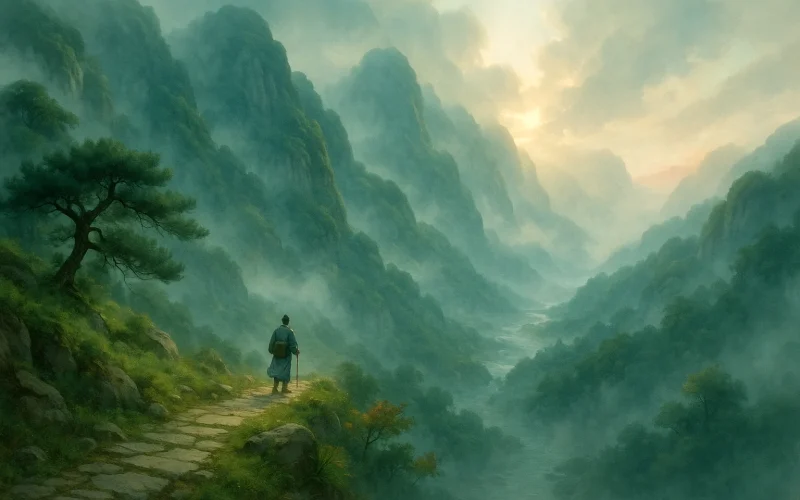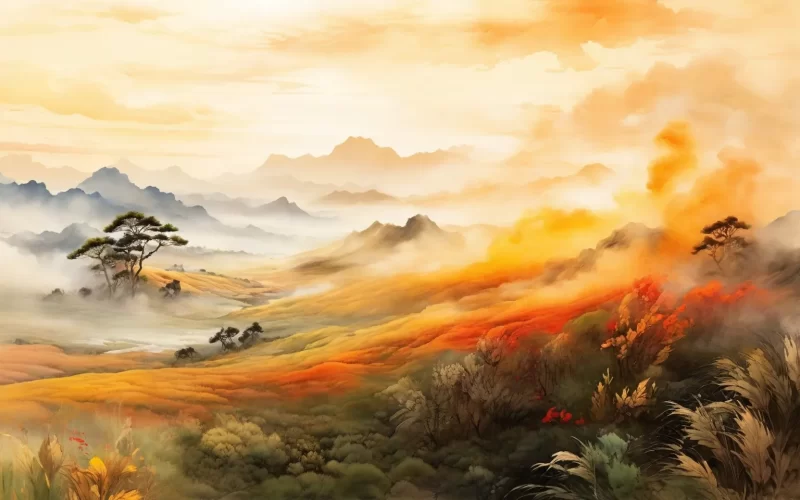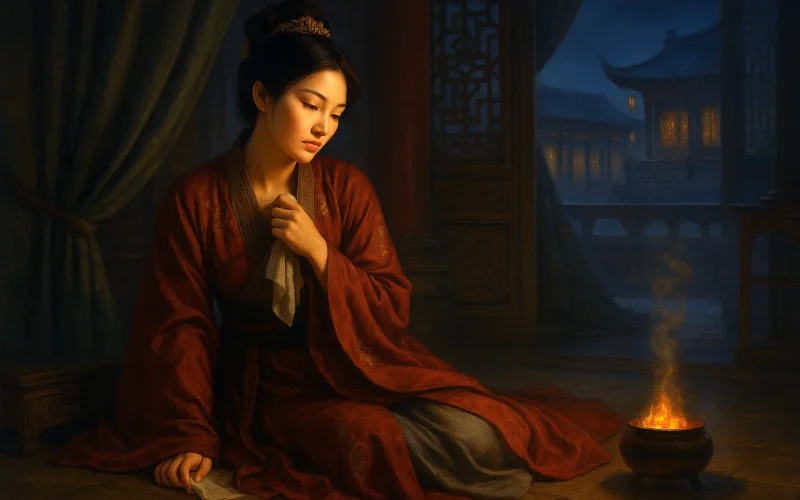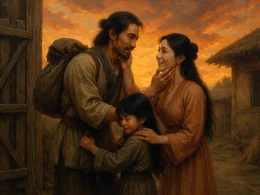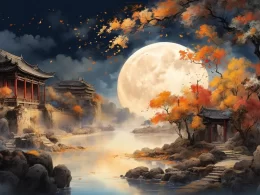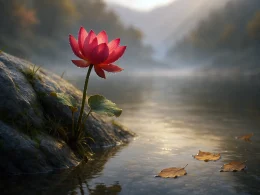Though you think to return to this maze of mountains,
Oh, let them brim your heart with wonder!...
Remember the fisherman from Wuling
Who had only a day in the Peach-Blossom Country.
Original Poem:
「送崔九」
裴迪
归山深浅去, 须尽丘壑美。
莫学武陵人, 暂游桃源里。
Interpretation:
This poem was written by Pei Di to send Cui Xingzong back to the mountain to live in seclusion, exhorting him to live in seclusion in the mountain and send his love to the landscape and not to come out again.
Cui Jiu, that is, Cui Xingzong, who once lived in the Final South Mountain with the author and Wang Wei in seclusion, sang and sang with each other.
After returning to the mountains this time, no matter how deep or shallow he entered the mountains, he wanted to see the beauty of the mountains and rivers and the secluded beauty of the forests and trees. This is of course an exhortation to Cui Xingzong not to stay in the worldly life, and to sublimate his feelings for the mountains and waters to a height opposed to the worldly life, which is related to their boredom and antipathy to the reality. The last two lines are to advise Cui Xingzong to live in seclusion in the gullies and ravines, and not to return to real life from that realm since he has found the true interest of life in the mountains and waters.
On the one hand, this expresses the affirmation of the secluded life, and on the other hand, it also expresses the disgust of the real society. The author lived around the time of Emperor Tang Xuanzong and Emperor Suzong of Tang, and this poem was written around the latter part of Emperor Tang Xuanzong's reign. At that time, due to Tang Xuanzong's appointment of the treacherous minister Li Linfu and his favoring of Yang Guifei, the politics were very dark, and the lower intellectuals were unable to join the civil service, and there was no way out for the poor scholars like Pei Di and Cui Xingzong. So they preferred to live in seclusion in the mountains and lead an isolated life. Therefore, the author advised his friends that since they had found the true interest between the mountains and the water and the support for their thoughts and feelings, they should not be like the people of Wuling in Tao Yuanming's "Memories of the Peach Blossom Garden", who found the peach blossom garden but gave it up easily.
The language of this poem is simple and easy to understand, but the intention is very deep, it is really a good poem.
Poem translator:
Kiang Kanghu
About the poet:
Pei Di (裴迪), born and died in an unknown year, was a native of Guanzhou, and was a former official of the Shangshu Provincial Lang. He lived in seclusion with Wang Wei and Cui Xingzong at Zhennan Mountain, and sang and harmonized with them at Wang Wei's villa. In 760 AD, Pei Di traveled to Sichuan and sang with Du Fu in poetry and wine, but his life was very unhappy. His life was very unsatisfactory. Twenty-nine of his poems are recorded in Quan Tang Shi (全唐诗).






